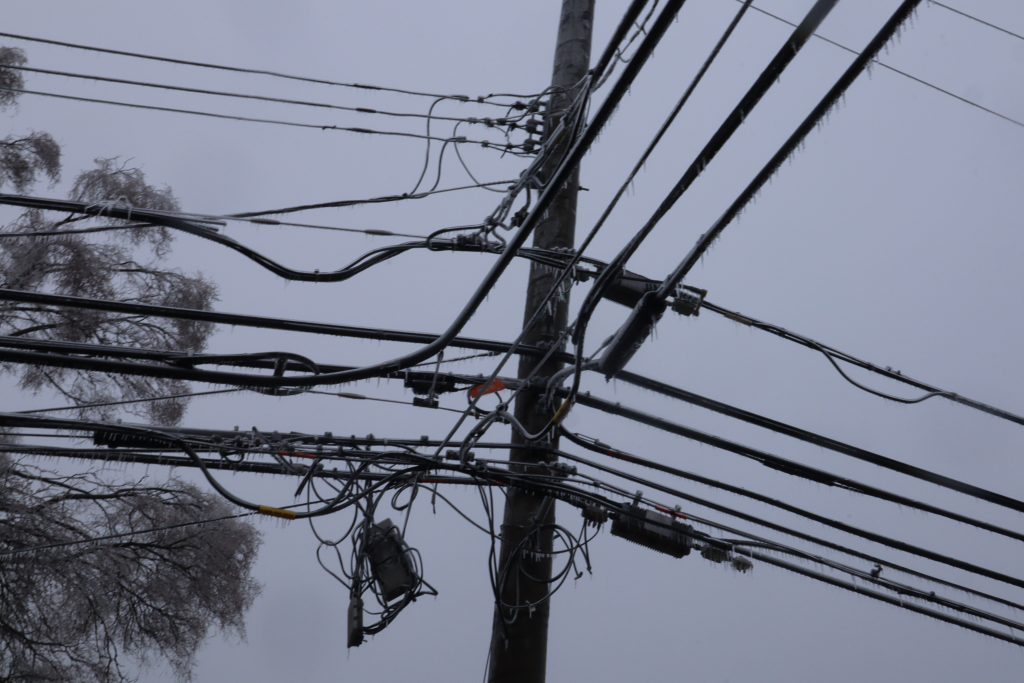Amid frequent outages, Michiganders question the value of public energy utilities
Economist Adrian Moore and environmental law expert Nick Schroeck join Detroit Today to argue for and against private energy utilities.

Frozen power lines in Royal Oak in Feb. 2023.
Over the last two weeks, hundreds of thousands of Michiganders lost power. This was cause for outrage — but it wasn’t terribly novel.
Michiganders are growing more and more accustomed to losing power for days at a time a few times each year. That’s the result of a combination of factors. Climate change is causing storms to get more severe and more frequent, and our infrastructure is also outdated.
But there’s a more contentious aspect of these outages — the fact that they happen under the control of large publicly-traded companies, including DTE Energy and Consumers Energy. People in the region generally don’t like these companies because they have a hard time holding them accountable, and because the former company charges very high rates for service.
Now, technically, these companies are overseen by the Michigan Public Service Commission, a government agency. But in reality, customers often don’t feel like they have any say in the operations of the companies.
And all these feelings of powerlessness and the consistent outages leave us with questions: What are actually the best utility systems we can have? Does it make a big difference whether we have private or public utilities?
Adrian Moore, an economist and vice president of policy at the Reason Foundation, and Detroit Mercy School of Law Associate Dean of Experiential Education Nick Schroeck join Detroit Today guest host Nick Austin for a conversation about public versus private utility companies.
Listen: Weighing the pros and cons of public vs. private energy utilities
Guests
Adrian Moore is an economist and vice president of policy at the Reason Foundation. He says customers are happiest when they get to choose how they get energy for their homes, as happens in Texas.
“There’s a competitive structure for who you’re going to buy your electricity from. There’s still a monopoly for the wires to get you the electricity – that’s all regulated by the state. But people can choose green energy, they can choose cheap energy, they can choose energy where they get a lot of technological control,” says Moore.
Nick Schroeck is the Associate Dean of Experiential Education and an Associate Professor at Detroit Mercy School of Law. He’s an environmental law expert. He says private utilities are often more accountable to the public, and are not distracted by shareholder concerns as are publicly-traded companies.
“They often make decisions as a corporation intending to boost that share price, and that’s where we see that conflict between what’s good for the investors and the share price, and what’s good for us as customer rate payers — and sometimes there’s a conflict there,” says Schroeck.
Trusted, accurate, up-to-date.
WDET strives to make our journalism accessible to everyone. As a public media institution, we maintain our journalistic integrity through independent support from readers like you. If you value WDET as your source of news, music and conversation, please make a gift today.
